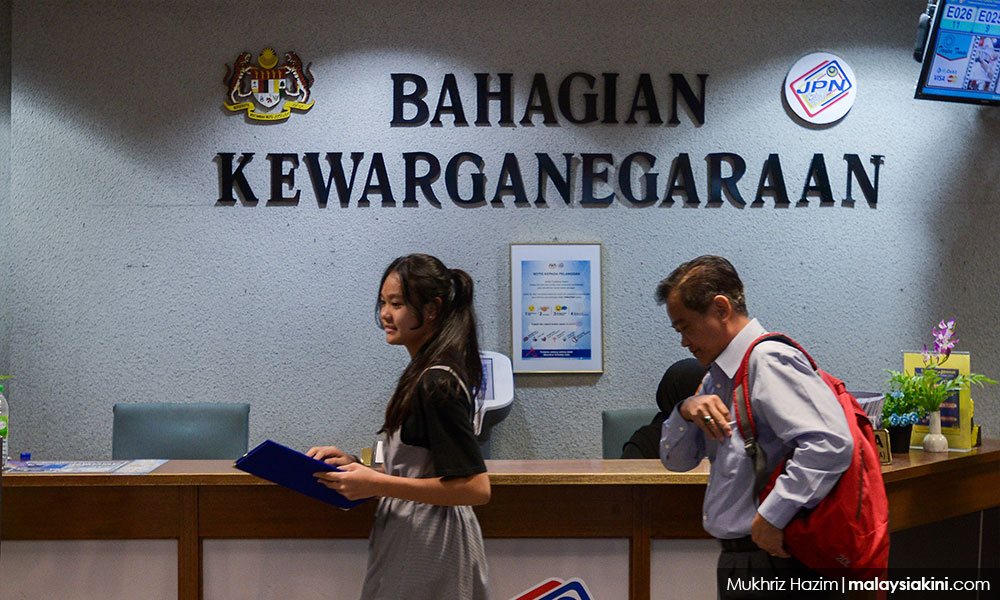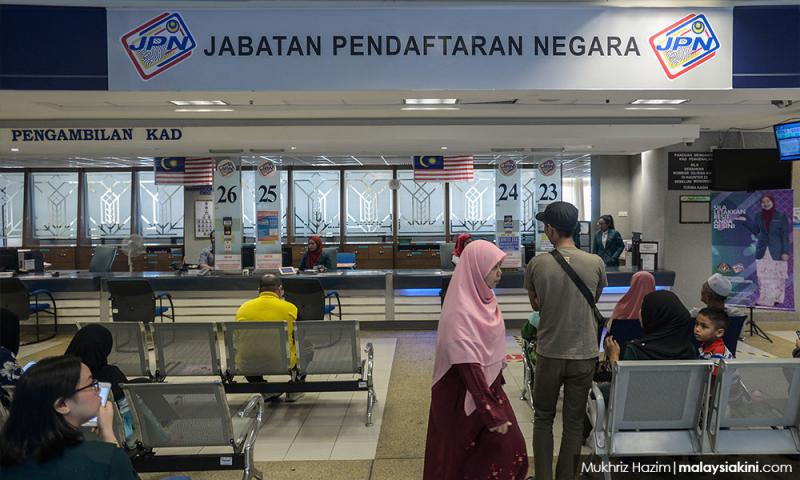MP SPEAKS | When citizenship determines a child's future
MP SPEAKS | Statelessness amongst children is a significant issue as it denies them basic rights and protections. There are reasons for stateless children in Malaysia.
Unregistered births from irregular marriages (discrimination against children born out of wedlock), inconsistent National Registration Department procedures at the district and state level, inconsistencies in relevant laws - that is the Federal Constitution, Adoption Act 1952, and the Births and Deaths Registration Act 1957.
I am of the opinion that we, as policymakers, should heed some of Suhakam’s recommendations, namely the Home Ministry must execute the standard operating procedure that was established on Jan 1, 2020, to expedite the processing of citizenship applications.
Malaysiakini reported that as of April 6, the ministry has approved less than 5 percent of the 10,105 citizenship applications filed between 2019 and 2022.
In addition to this, Article 14(1)(b) and Second Schedule, Part II, Section 1 (b) and Section 17 in the Federal Constitution must be reformed to prevent statelessness among children whose mothers are citizens.
Furthermore, the Adoption Act 1952 must be reviewed to allow adopted children to have the same rights as children born of lawful wedlock.
Stateless children who are adopted by Malaysian parents are not conferred citizenship automatically through their adoptive parents. The adoptive parents must apply for citizenship under Article 15A of the Federal Constitution, and there is no guarantee the application will be granted.
Although birth registration is a fundamental right of every child, it is estimated that there are 50,000 undocumented children in Malaysia, and these include children from the rural poor and indigenous communities in remote locations, as well as children of migrants and refugees.
We are well aware that Malaysia does not grant citizenship by birth, choosing not to adhere to the principle of jus soli. Individuals must only apply for citizenship if one parent is a citizen of Malaysia.

Migrants must produce each parent's passport and a certificate of marriage, documents which many do not possess, if they wish to obtain a birth certificate in Malaysia.
In addition, those who work in rural areas are sometimes not able to travel to the national registration authority to apply for the birth certificate.
All children must be protected
I would like to take this opportunity to remind everyone that the government ratified the United Nations Convention on the Rights of the Child (CRC) in 1995 - an international agreement that upholds the civil, political, economic, social, and health rights of all children under the age of 18.
With that being said, the protection of rights should also be extended to children with disabilities, asylum-seeking children, refugee children, stateless children, and children of foreign workers.
The red tapes that exist are real and no doubt they are in place to protect our nation’s sovereignty but given the number of stateless children in our country, education and healthcare are basic human rights that should and must be extended to every single child, regardless.
There is a lot of discrimination and negativity that surrounds these issues, as human beings, we can not deny their rights to exist and live lives just like you and I.
SYERLEENA ABDUL RASHID is Bukit Bendera MP.
The views expressed here are those of the author/contributor and do not necessarily represent the views of Malaysiakini.
RM12.50 / month
- Unlimited access to award-winning journalism
- Comment and share your opinions on all our articles
- Gift interesting stories to your friends
- Tax deductable

 Syerleena Abdul Rashid
Syerleena Abdul Rashid